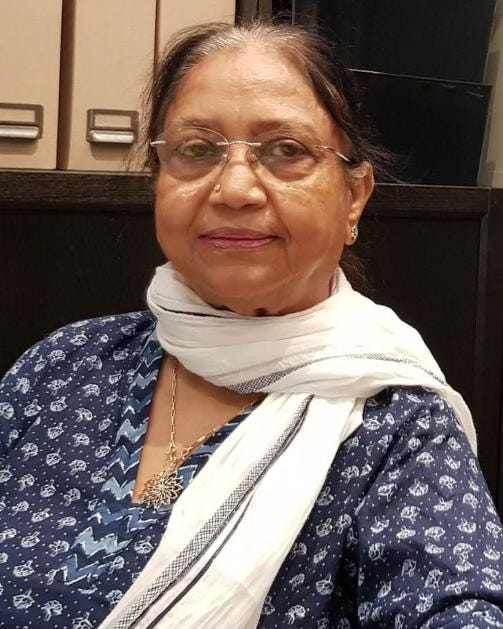Banu Mushtaq’s Booker Acceptance Speech Was Such A Palate Cleanser
It was a brief reset/respite from the bitter taste of news these days
Banu Mushtaq just gave us a We-Are-The-World moment.
The Karnataka-based author did a service to a tortured world by reminding us in her International Booker Prize acceptance speech that the main quality we need to survive and thrive is empathy. That all our lives are equally important. And that the only way forward is if we open ourselves to experiencing each other’s realities. What better platform to say this on than while receiving the world’s most influential award for translated fiction.
“This book was born from the belief that no story is ever small; that in the tapestry of human experience, every thread holds the weight of the whole,” Mushtaq said about Heart Lamp, the winning book that she wrote in Kannada and which was translated by Deepa Bhasthi. It’s the literary equivalent of pointing out that if we leave behind a group of people, their absence is directly reflected in our progress as a nation or world. Eg: When women work, economies grow. Unity in diversity, basically.
In a world that wants you to only hear one story, Mushtaq’s appeal to “live inside each other’s minds” is the shot of empathy that all of us need. Put yourself in the shoes of Palestine today. Or closer home, feel some of the pain of the stories buzzing all around you instead of burying your head in the ground. Only the best writers can make this wisdom sound like a haiku and not a lecture.
Her sharp observations about human nature illustrated through 12 short stories about Muslim women’s lives in southern India, resonated with a jury that has unlikely strayed anywhere near the reality depicted in Heart Lamp. Her book is evidence that small stories can make a big journey across a far ocean and be understood just as well by the people who live on that side of the world. In a world reeling with divisions, Mushtaq highlighted the universality of the human experience.
Mushtaq’s speech was an appeal to bridge boundaries and increase cultural awareness. Her language was the opposite of what we are used to hearing from our political leaders. Like Donald Trump who uses Pocahontas to mock a senator with Native American lineage or calling Mexicans rapists and drug carriers.
In an age when diversity is seen as a bad word, Mushtaq appealed to us to inhabit as many worlds as we can. “In a world that often tries to divide us, literature remains one of the last sacred spaces where we can live inside each other's minds, if only for a few pages,” she said.
The 2025 Compassion report by Muhammad Ali Index found that people don’t want corporations telling them how to act compassionately. Sixty percent of those surveyed said they want to learn about compassion from everyday people. “Compassion is a skill that is taught through action.”
Mushtaq just gave us the vocabulary to express the compassion that may be lurking silently in us as we watch the world burn.
Might as well listen to We Are The World to keep this moment alive :)
And don’t forget to listen to Mushtaq’s speech.





I saw Mushtaq’s speech live and was sooo moved. Made me question if is it really true that each story matters. I wonder however, in this era of AI practically training on works like Mushtaq’s and other notable works of many authors, how can we exist in each other’s minds? Can we say the same works in the future?
Beautiful homage to the most wonderful speech!